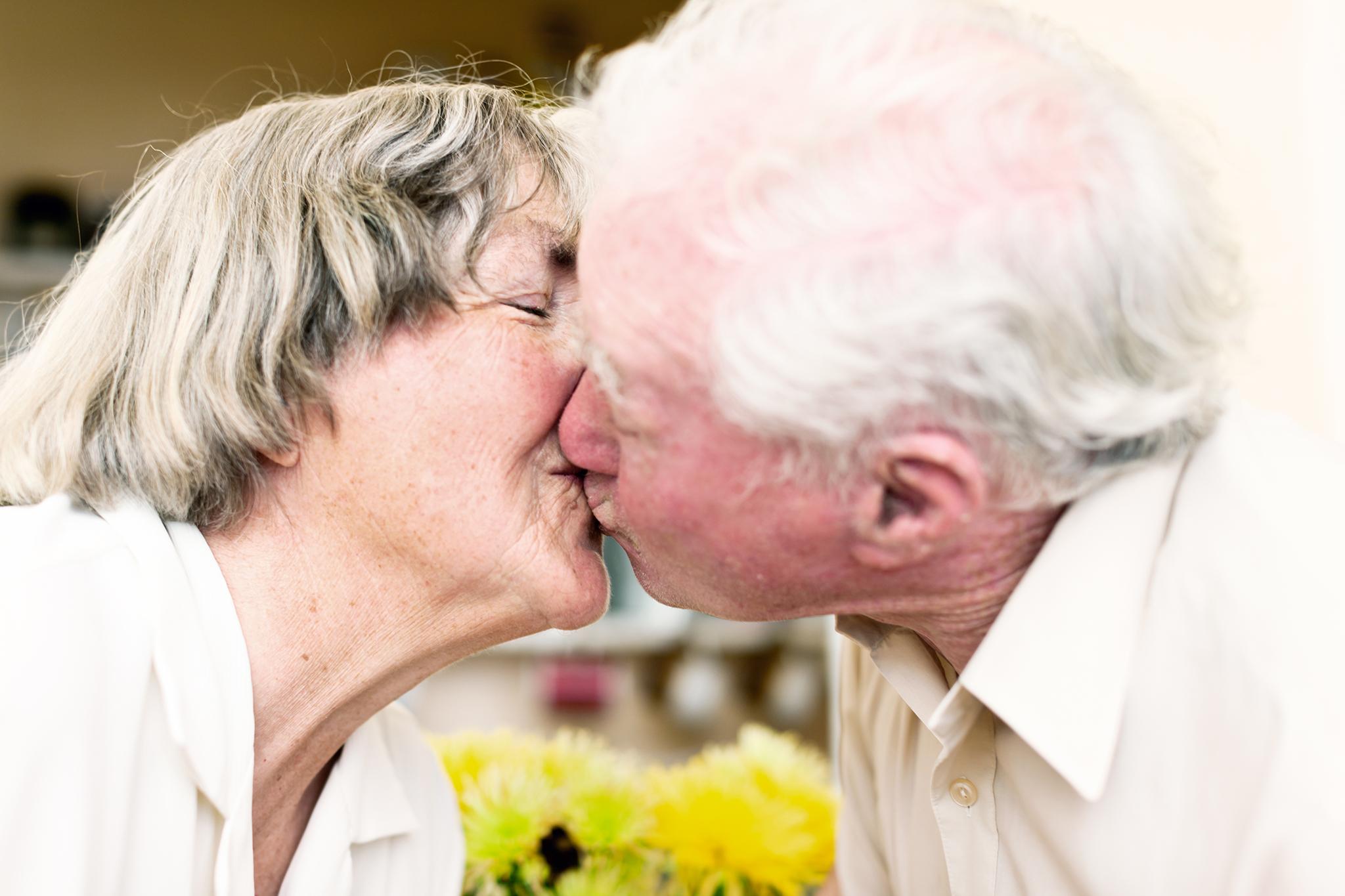Using supportive furniture and viagra: A sex therapist's guide to sex for the elderly
'For both men and women, the term 'use it or lose it' often applies,' sex therapist says

It's a surprising conclusion, but a recent study suggested that men and women in their eighties have better sex than those up to twenty years younger than them, smashing the stereotype that sex has to stop when you reach a certain age.
The study from the UK’s International Longevity Centre found that people between the ages of 60 and 70 reported more difficulties in becoming aroused than those aged 80 and over. The authors of the study said that “conversations around sex and older people need to be normalised and that “positive sexuality and intimacy throughout the life course is linked to higher levels of happiness and well-being, irrespective e of age”.
Denise Knowles, a sex therapist at Relate, has counselled elderly clients on their sex lives. She told The Independent sex is normal and healthy to do “for as long as you are enjoying it, you want to keep doing it and you are able to”. She says there have been some studies which suggests couples in their 70s reporting having sex up to three times a week – much longer than many younger couples.
Advice she would pass on to couples over the age of 70 who want to maintain a healthy sex life includes paying attention to diet and exercise, as well as continually working on the relationship.
“We’d also recommended paying attention to the whole of your relationship and not just the sexual side. If you aren’t paying attention to the whole of your relationship then it will be difficult to be intimate,” she says.
Obviously, as the human body slows down with age, surely there must be some things older couples have to bear in mind when doing any form of exercise which could be construed as vigorous or requiring a lot of movement?
“Depending on the state of your health (for example if you are suffering from arthritis or joint pain), you are going to need to get creative. This can be a good thing as it can encourage you to be more experimental and more fun. The key is to know the limitations of your body and not feel criticised or rejected if one partner can’t do something because of their physical limitations,” Knowles says. “Sexual positions very much depend on your flexibility and general health as well as how confident you feel about your body. You can think about using furniture to help you to get into positions and support your bones and joints. If you are interested in sex there are usually solutions that can allow you can to enjoy it.”
Women can suffer from vaginal dryness due to hormonal changes after menopause so suggests counteracting this with lubricant.
Men, on the other hand, can have trouble getting and maintaining an erection. Krystal Woodbridge, a psychosexual and relationship counsellor and member of CORST, says it is essential a GP assesses men experiencing erectile dysfunction to rule out any medical conditions.
“Once any medical causes have been ruled out, and it is established that the client can obtain an erection on some occasions, it is likely that the problems are psychological or emotional. Medication such as Viagra can certainly help, and to help to build confidence. However psychosexual therapy aimed at addressing the underlying psychological and emotional causes, and providing the client with specific techniques to practice at home, can help to provide the client with more permanent, longer term results. Some men use vacuum pump devices as well as a range of others on the market.
“For both men and women, the term 'use it or lose it' often applies,” she told The Independent.
She also warned of other health complications such as the effects of some medication which can affect sexual functioning.
Knowles also stresses that sex does not have to mean full intercourse.
“There are other ways of being intimate with one another that couples can find equally fulfilling such as cuddling and kissing and massage... You don’t have to be having full intercourse to enjoy an active sex life.
“There are many health benefits to sex but you can get a lot of these not by having full penetrative intercourse. Sex reduces stress levels, you are getting some exercise and it increases feelings of wellbeing.”
Dr David Lee, the co-author of the recent study, also told The Guardian that sex is not defined by penetration.
“We saw quite a lot of adaptation in the older people, saying they no longer had penetrative sexual intercourse and were more content with kissing and cuddling and general intimacy. We kept a very broad definition of sex. We saw what appeared to be adaptive behaviour in the older members of our sample.”
While physical challenges may be a deterrent, there may also be mental obstacles to overcome for couples in this age bracket and Knowles says older people may feel more tired and less potent.
“You may think “at my age should I be wanting to have sex”. Sometimes it’s about challenging society’s attitudes and your own perception about what you should or shouldn’t be doing. You might not ask your partner about sex because you don’t want to put them in an awkward position. You may need to challenge these thoughts and talk to your partner about them.”
Join our commenting forum
Join thought-provoking conversations, follow other Independent readers and see their replies
Comments
Bookmark popover
Removed from bookmarks